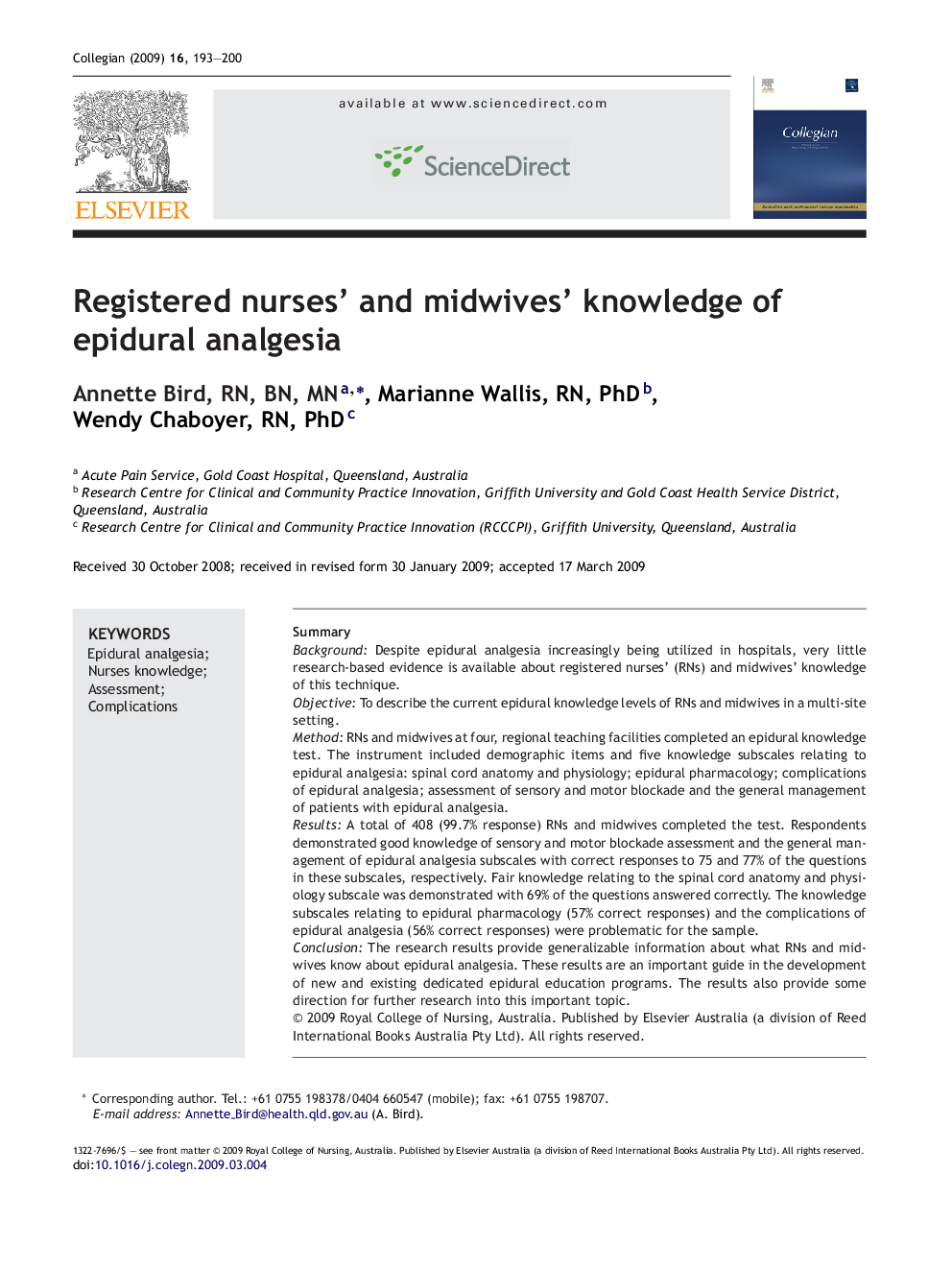| Article ID | Journal | Published Year | Pages | File Type |
|---|---|---|---|---|
| 2646541 | Collegian | 2009 | 8 Pages |
SummaryBackgroundDespite epidural analgesia increasingly being utilized in hospitals, very little research-based evidence is available about registered nurses’ (RNs) and midwives’ knowledge of this technique.ObjectiveTo describe the current epidural knowledge levels of RNs and midwives in a multi-site setting.MethodRNs and midwives at four, regional teaching facilities completed an epidural knowledge test. The instrument included demographic items and five knowledge subscales relating to epidural analgesia: spinal cord anatomy and physiology; epidural pharmacology; complications of epidural analgesia; assessment of sensory and motor blockade and the general management of patients with epidural analgesia.ResultsA total of 408 (99.7% response) RNs and midwives completed the test. Respondents demonstrated good knowledge of sensory and motor blockade assessment and the general management of epidural analgesia subscales with correct responses to 75 and 77% of the questions in these subscales, respectively. Fair knowledge relating to the spinal cord anatomy and physiology subscale was demonstrated with 69% of the questions answered correctly. The knowledge subscales relating to epidural pharmacology (57% correct responses) and the complications of epidural analgesia (56% correct responses) were problematic for the sample.ConclusionThe research results provide generalizable information about what RNs and midwives know about epidural analgesia. These results are an important guide in the development of new and existing dedicated epidural education programs. The results also provide some direction for further research into this important topic.
